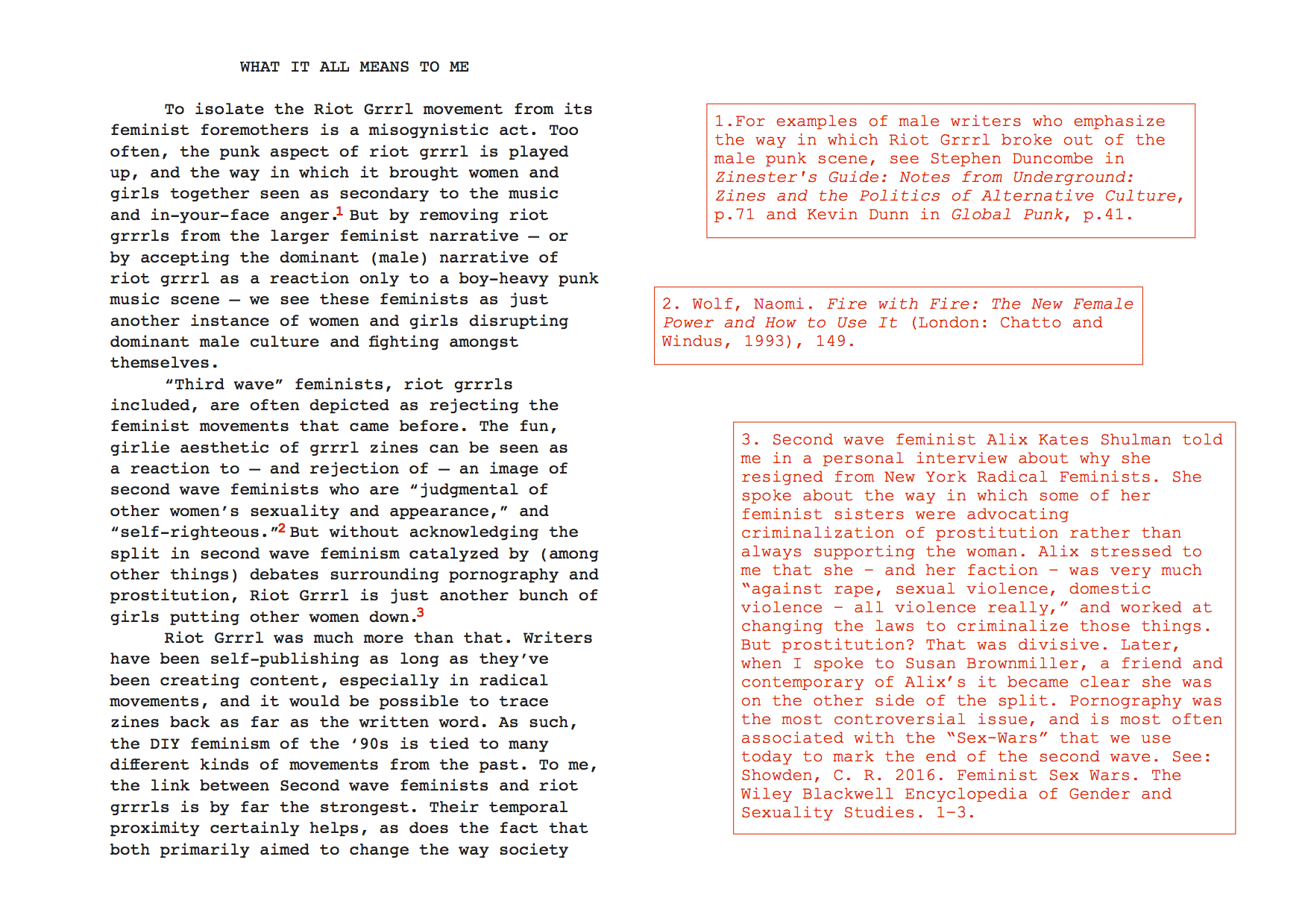Alix Kates Shulman is one of my heroes. She was a political activist in the civil rights movement, the anti-war movement, and the feminist movements that informed so much of how I am able to live my life. She helped organize the 1968 Miss America Pageant protest and was a member of Redstockings and Radical New York Feminists among many other groups. I had worked with her in the past, acting as a research assistant for an anthology of Women’s Liberation material and compiling binders full of copies of original documents. When I arrived at her apartment, she had laid the binders out on the table, with some cheese and crackers. “Tea?” I accepted the tea, and began leafing through the binders to find the ‘Women Against Rape' pamphlet I was looking for. It was the stop-sign motif on this pamphlet that I remembered most; the stop sign is also a motif on the back of Riot Grrrl #4. Moreover, Kathleen Hanna had worked in a rape crisis center in Olympia. With Columbia’s campus a hotbed of discussion and activism surrounding sexual assault, and our president elect under investigation following several accusations, how women deal with rape has never felt more relevant to me.
However, as I have become involved with the New York organizing team for the January 2017 March on Washington, it has become clearer and clearer that the urgency expressed in the crossed-out-type-written spelling mistakes of Riot Grrrl and the hastily scrawled additions to mimeographed broadsheets produced by Redstockings is sorely lacking from email chains and Slack channels. Alix called Women's Liberation a "face to face movement," but surely the advancement in communications technology since the 1970s has not diminished our ability to organize and accomplish? While we have the entire internet at our disposal, second wave feminists relied on word of mouth, passing flyers from hand to hand, and a telephone tree to get in contact with each other. Similarly, riot grrrls found each other by referral through other zines, or a friend of a friend, or an advert picked up at a punk rock show. The challenge facing us in the twenty-first century is to figure out how to maintain the level of understanding of these two movements without the forced physical proximity that we are spared thanks to advancements in technology.
Alix handed me a napkin with my tea. “I thought you’d enjoy this,” she said, smiling. The napkin is printed with what looks like a refrigerator advert from the fifties. A woman with perfectly coiffed hair, a slim waist, wearing red lipstick gestures grinning at an open and fully stocked fridge. The words “make your own damn dinner” are printed over the picture. When we sit down to talk about the 2016 Election, Riot Grrrl, rape activism, abortions (she’s had four), and her experience in the movement, she is straightforward, honest, and articulate. And just a tad conspiratorial.
